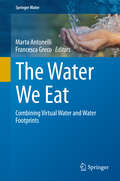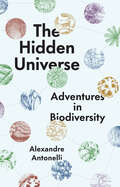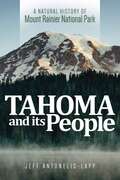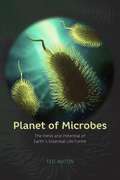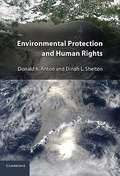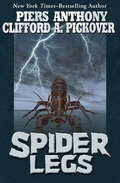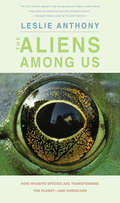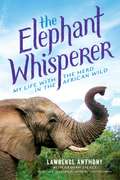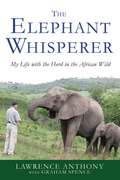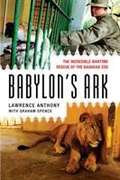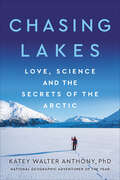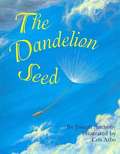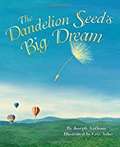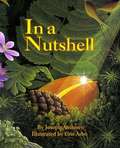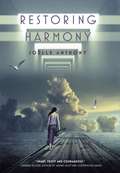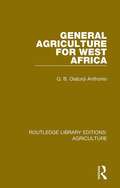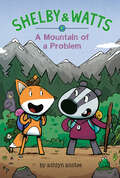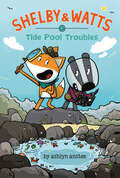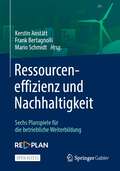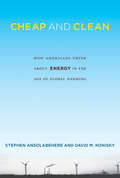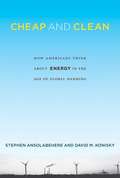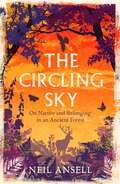- Table View
- List View
The Water We Eat
by Marta Antonelli Francesca GrecoThis book pursues a comprehensive, multidisciplinary approach in order to analyze the relationship between water and food security. It demonstrates that most of the world's economies lack sufficient water resources to secure their populations' food requirements and are thus virtual importers of water. One of the most inspiring cases, which this book is rooted in, is Italy: the third largest net virtual water importer on earth. The book also shows that the sustainability of water depends on the extent to which societies recognize and take into account its value and contribution to agricultural production. Due to the large volumes of water required for food production, water and food security are in fact inextricably linked. Contributions from leading international experts and scholars in the field use the concepts of virtual water and water footprints to explain this relationship, with an eye to the empirical examples of wine, tomato and pasta production in Italy. This book provides a valuable resource for all researchers, professionals, policymakers and everyone else interested in water and food security.
The Hidden Universe: Adventures in Biodiversity
by Alexandre AntonelliAn unforgettable exploration of the natural world and the concept of biodiversity—what it is, why it matters, and how we as individuals can work to preserve it. We are now living in an environmental emergency. As climate change, habitat loss, and other threats have placed almost one-fifth of all species on Earth at risk of extinction in the coming decades, a deeper understanding of biodiversity has never been more important. Biodiversity encompasses the rich variety of all life on Earth—the building blocks of life that provide invaluable sources of food, medicine, clothing, building materials, and more. Marking the arrival of a bold new voice in popular science, The Hidden Universe shows readers what’s at stake in the fight to protect and restore biodiversity, but also what can and should be done now to protect our planet and ourselves for the future. As director of science at one of the world’s largest research organizations in plant and fungal sciences, Brazilian-born scientist Alexandre Antonelli is ideally suited to reveal the wonders of biodiversity at a genetic, species, and ecosystem level—what biodiversity is, how it works, and why it is the most important tool in our battle against climate change. Antonelli offers recommendations for large-scale political changes, as well as smaller, practical steps that readers can implement in their own lives and homes. With Antonelli as our guide, The Hidden Universe helps us imagine a future where biodiversity is not just preserved but cherished.
The Hidden Universe: Adventures in Biodiversity
by Alexandre AntonelliAn unforgettable exploration of the natural world and the concept of biodiversity—what it is, why it matters, and how we as individuals can work to preserve it. We are now living in an environmental emergency. As climate change, habitat loss, and other threats have placed almost one-fifth of all species on Earth at risk of extinction in the coming decades, a deeper understanding of biodiversity has never been more important. Biodiversity encompasses the rich variety of all life on Earth—the building blocks of life that provide invaluable sources of food, medicine, clothing, building materials, and more. Marking the arrival of a bold new voice in popular science, The Hidden Universe shows readers what’s at stake in the fight to protect and restore biodiversity, but also what can and should be done now to protect our planet and ourselves for the future. As director of science at one of the world’s largest research organizations in plant and fungal sciences, Brazilian-born scientist Alexandre Antonelli is ideally suited to reveal the wonders of biodiversity at a genetic, species, and ecosystem level—what biodiversity is, how it works, and why it is the most important tool in our battle against climate change. Antonelli offers recommendations for large-scale political changes, as well as smaller, practical steps that readers can implement in their own lives and homes. With Antonelli as our guide, The Hidden Universe helps us imagine a future where biodiversity is not just preserved but cherished.
Tahoma and its People: A Natural History of Mount Rainier National Park
by Jeff Antonelis-LappA magnificent active volcano, Mount Rainier ascends to 14,410 feet above sea level--the highest in Washington State. The source of five major rivers, it has more glaciers than any other peak in the contiguous U.S. Its slopes are home to ancient forests, spectacular subalpine meadows, and unique, captivating creatures. <p><p>In Tahoma and Its People, a passionate, informed, hands-on science educator presents a natural and environmental history of Mount Rainier National Park and the surrounding region. Jeff Antonelis-Lapp explores geologic processes that create and alter landscapes, interrelationships within and between plant and animal communities, weather and climate influences on ecosystems, and what linked the iconic mountain with the people who traveled to it for millennia. He intersperses his own direct observation and study of organisms, as well as personal interactions with rangers, archaeologists, a master Native American weaver, and others. He covers a plethora of topics: geology, archaeology, indigenous villages and use of resources, climate and glacier studies, alpine and forest ecology, rivers, watershed dynamics, keystone species, threatened wildlife, geological hazards, and current resource management. Numerous color illustrations, maps, and figures supplement the text. <p><p>2020 Banff Mountain Book Competition Finalist, Mountain Environment and Natural History category
Planet of Microbes: The Perils and Potential of Earth's Essential Life Forms
by Ted AntonWe live in a time of unprecedented scientific knowledge about the origins of life on Earth. But if we want to grasp the big picture, we have to start small—very small. That’s because the real heroes of the story of life on Earth are microbes, the tiny living organisms we cannot see with the naked eye. Microbes were Earth’s first lifeforms, early anaerobic inhabitants that created the air we breathe. Today they live, invisible and seemingly invincible, in every corner of the planet, from Yellowstone’s scalding hot springs to Antarctic mountaintops to inside our very bodies—more than a hundred trillion of them. Don’t be alarmed though: many microbes are allies in achieving our—to say nothing of our planet’s—health. In Planet of Microbes, Ted Anton takes readers through the most recent discoveries about microbes, revealing their unexpected potential to reshape the future of the planet. For years, we knew little about these invisible invaders, considering them as little more than our enemies in our fight against infectious disease. But the more we learn about microbes, the more it’s become clear that our very lives depend on them. They may also hold the answers to some of science’s most pressing problems, including how to combat a warming planet, clean up the environment, and help the body fight off a wide variety of diseases. Anton has spent years interviewing and working with the determined scientists who hope to harness the work of microbes, and he breaks down the science while also sharing incredible behind-the-scenes stories of the research taking place everywhere from microbreweries to Mars. The world’s tiniest organisms were here more than three billion years before us. We live in their world, and Planet of Microbes at last gives these unsung heroes the recognition they deserve.
Environmental Protection and Human Rights
by Donald K. Anton Dinah SheltonWith unique scholarly analysis and practical discussion, this book provides a comprehensive introduction to the relationship between environmental protection and human rights being formalized into law in many legal systems. This book instructs on environmental techniques and procedures that assist in the protection of human rights. The text provides cogent guidance on a growing international jurisprudence on the promotion and protection of human rights in relation to the environment that has been developed by international and regional human rights bodies and tribunals. It explores a rich body of case law that continues to develop within states on the environmental dimension of the rights to life, to health, and to public participation and access to information. Five compelling contemporary case studies are included that implicate human rights and the environment, ranging from large dam projects to the creation of a new human right to a clean environment.
Spider Legs
by Piers Anthony Clifford A. PickoverAn ecological disaster spawns an eight-legged sea monster in this collaboration between the science fiction author and acclaimed nonfiction writer. Millions of readers have enjoyed the books of Piers Anthony, including (but certainly not limited to) his undeniably popular Xanth and Blue Adept series. Now, in collaboration with celebrated nonfiction author Clifford A. Pickover, he brings us a disturbing tale of our own world, and the strange creatures with whom we share it. It is said, and truly, that there are more things under heaven and earth than there are almost anywhere else; true as well that many of them lurk, unsuspected, far below the surface of the planet&’s ocean. For thousands of years, mankind has simultaneously trusted in the sea&’s proverbial generosity and used it as a dumping ground, trusting that in its vastness his garbage will be swallowed up and forgotten. But that was never really true. And now, in an age when the overcrowded Earth swarms with hungry inhabitants whose waste chokes even the sea, whose greedy demands overtax its seemingly endless bounty, strange things are born in the ocean&’s deeps—strange things that the ocean throws back upon the land.
Spider Legs
by Piers Anthony Clifford A. PickoverAn ecological disaster spawns an eight-legged sea monster in this collaboration between the science fiction author and acclaimed nonfiction writer. Millions of readers have enjoyed the books of Piers Anthony, including (but certainly not limited to) his undeniably popular Xanth and Blue Adept series. Now, in collaboration with celebrated nonfiction author Clifford A. Pickover, he brings us a disturbing tale of our own world, and the strange creatures with whom we share it. It is said, and truly, that there are more things under heaven and earth than there are almost anywhere else; true as well that many of them lurk, unsuspected, far below the surface of the planet&’s ocean. For thousands of years, mankind has simultaneously trusted in the sea&’s proverbial generosity and used it as a dumping ground, trusting that in its vastness his garbage will be swallowed up and forgotten. But that was never really true. And now, in an age when the overcrowded Earth swarms with hungry inhabitants whose waste chokes even the sea, whose greedy demands overtax its seemingly endless bounty, strange things are born in the ocean&’s deeps—strange things that the ocean throws back upon the land.
The Aliens Among Us: How Invasive Species Are Transforming the Planet—and Ourselves
by Leslie AnthonyA thoughtful, accessible look at the rapidly growing issue of invasive plants, animals, and microbes around the globe with a focus on the scientific issues and ecological, health, and other challenges From an award-winning adventure and science journalist comes an eye-opening exploration of a burgeoning environmental phenomenon and the science coalescing around it. Leslie Anthony leads readers on adventures physical and philosophical as he explores how and why invasive species are hijacking ecosystems around the globe. Weaving science, travel, history, and humor with diverse examples to chart and describe the phases of species invasion and human response, Anthony introduces field researchers and managers who seek to understand the biological, social, and economic aspects of this complex issue, and whose work collectively suggests the emergence of a global shadow economy centered on invasives. With tales of pythons in the Everglades, Asian carp and lamprey in the Great Lakes, Japanese knotweed seemingly everywhere, and the invasive organisms we don’t see—pathogens and microbes such as the Zika virus—this book rivets attention on a new ecological reality.
The Elephant Whisperer (Young Readers Adaptation): My Life with the Herd in the African Wild
by Lawrence Anthony Graham Spence Thea FeldmanWhen Lawrence Anthony was asked to accept a rogue herd of elephants in his reserve in South Africa, it was the last chance for these elephants. If Anthony didn’t take them, they would be shot. But he had no experience with elephants at all. What was he to do?Take them on, of course!What follows is an exciting and heartwarming series of adventures, in which Anthony learns about elephants and becomes part of their family. Full of both triumph and tragedy, this fascinating account of living with the majestic elephant is unforgettable.
The Elephant Whisperer: My Life With the Herd in the African Wild
by Lawrence Anthony Graham SpenceLawrence Anthony devoted his life to animal conservation, protecting the world's endangered species. Then he was asked to accept a herd of "rogue" wild elephants on his Thula Thula game reserve in Zululand. His common sense told him to refuse, but he was the herd's last chance of survival: they would be killed if he wouldn't take them. In order to save their lives, Anthony took them in. In the years that followed he became a part of their family. And as he battled to create a bond with the elephants, he came to realize that they had a great deal to teach him about life, loyalty, and freedom. The Elephant Whispereris a heartwarming, exciting, funny, and sometimes sad memoir of Anthony's experiences with these huge yet sympathetic creatures. Set against the background of life on an African game reserve, with unforgettable characters and exotic wildlife, Anthony's unrelenting efforts at animal protection and his remarkable connection with nature will inspire animal lovers and adventurous souls everywhere.
Babylon's Ark: The Incredible Wartime Rescue of the Baghdad Zoo
by Lawrence AnthonyThe astonishing story of the soldiers, conservationists, and ordinary Iraqis who united to save the animals of the Baghdad Zoo. When the Iraq war began, conservationist Lawrence Anthony could think of only one thing: the fate of the Baghdad Zoo, caught in the crossfire at the heart of the city. Once Anthony entered Iraq he discovered that hostilities and uncontrolled looting had devastated the zoo and its animals. Working with members of the zoo staff and a few compassionate U.S. soldiers, he defended the zoo, bartered for food on war-torn streets, and scoured bombed palaces for desperately needed supplies. This book chronicles Anthony's hair-raising efforts to save a pride of Saddam's lions, close a deplorable black-market zoo, run ostriches through shoot-to-kill checkpoints, and rescue the dictator's personal herd of Thoroughbred Arabian horses. A tale of the selfless courage and humanity of a few men and women living dangerously for all the right reasons, the book is an inspiring and uplifting true-life adventure of individuals on both sides working together for the sake of magnificent wildlife caught in a war zone.
Chasing Lakes: Love, Science, and the Secrets of the Arctic
by Katey Walter AnthonyAn aquatic ecologist and permafrost scientist recalls her captivating adventures across the Arctic studying climate change, her quest to find belonging and family, and her journey of faith in a world of science in this poignant, eye-opening, and hopeful memoir in the spirit of Lab Girl, Educated, and Finding the Mother Tree.Katey Walter Anthony’s enchantment with lakes began when she was growing up amid the Sierra Nevada mountains. Today, her love for these bodies of water have taken her to the deepest reaches of Alaska and Siberia, where she is undertaking pioneering research on methane emissions. Chasing Lakes is her story: one-part adventure—complete with shipwrecks and treacherous treks through Arctic storms by helicopter, snowmobile, and foot to measure greenhouse gases—part coming-of-age tale, as she searches for belonging in the wake of a broken childhood, and part spiritual quest to find a wholeness science cannot fill.Somewhere between the remote, frozen landscapes of Siberia and her rough cabin in Alaska, she discovers her spiritual and emotional home when she meets Peter, a bright and humble Minnesota farmer who reinvigorates her faith and helps ground her. Yet finding love and fulfillment brings its own challenges. The closer she gets to having the family she’s always wanted, the further she’s pushed from the important field work that is her passion.Chasing Lakes is a chronicle of a woman seeking truth, adventure, scientific discovery, family, love, and grace. Both an eye-opening look from the frontlines of the climate crisis and an intimate portrait of a brilliant scientist, Chasing Lakes is memoir writing at its finest: beautiful, complex, revelatory, and moving.
The Dandelion Seed
by Joseph Anthony Cris ArboBy roadside or mountainside, the humble dandelion flowers every month of the year throughout the world, a fitting symbol of life. Its journey is our journey, filled with challenge, wonder, and beauty. Joseph Anthony's story of mystery and truth, and illustrator Cris Arbo's stunningly detailed illustrations make this book a joy for all.
The Dandelion Seed's Big Dream
by Joseph AnthonyConsider the dandelion. It lives life fully, flies with beauty, survives storms, endures darkness, never gives up. It is one of nature's greatest success stories. Like dandelions, each of us can make the world a brighter place. The trick is to bloom right where we are.
In A Nutshell (Sharing Nature With Children)
by Joseph AnthonyAn acorn grows into a mighty oak, helps sustain other life, and eventually dies and continues to give life to others.
Restoring Harmony
by Joëlle AnthonyThe year is 2041, and sixteen-year-old Molly McClure has lived a relatively quiet life on an isolated farming island in Canada, but when her family fears the worst may have happened to her grandparents in the US, Molly must brave the dangerous, chaotic world left after global economic collapse one of massive oil shortages, rampant crime, and abandoned cities. Molly is relieved to find her grandparents alive in their Portland suburb, but they're financially ruined and practically starving. What should've been a quick trip turns into a full-fledged rescue mission. And when Molly witnesses something the local crime bosses wishes she hadn't, Molly's only way home may be to beat them at their own game. Luckily, there's a handsome stranger who's willing to help. Restoring Harmony is a riveting, fast-paced dystopian tale complete with adventure and romance that readers will devour.
General Agriculture for West Africa (Routledge Library Editions: Agriculture #13)
by Q.B. Olatunji AnthonioFirst published in 1979. This study examines various aspects of agriculture in West Africa. There is a strong chapter on the economics of agriculture and records, farm machinery, agricultural improvement, fish and the basics of crop and livestock production are all dealt with. The role of government policy in the improvement of agriculture is also examined. This title will be useful to undergraduates concerned with agriculture who want a good grounding before going on to their specialised fields of the applied sciences, as well as to those interested in commercial farming and policy makers in civil administration.
A Mountain of a Problem (Shelby & Watts #2)
by Ashlyn AnsteeMystery-solving duo Shelby & Watts are back on the trail! They're saving the environment, one case at a time.Violet the bear has awoken early from her hibernation, but she doesn&’t know why. She&’s called on Shelby & Watts to solve the case before her son, Theodore, is roused from his hibernation, too. With Shelby&’s deductive skills and Watts&’s scientific know-how, they&’ll leave no stone unturned or question unanswered.In this follow-up to Tide Pool Troubles, our two environmental detectives uncover the larger issue underlying Violet's early start to spring: climate change. With accessible language and tips for what readers can do in the face of environmental change, this is a gentle introduction to one of today's most pressing issues.
Tide Pool Troubles (Shelby & Watts #1)
by Ashlyn AnsteeThere isn't a mystery that Shelby & Watts can't solve! They're saving the environment, one case at a time.Meet Shelby & Watts! Shelby loves a good mystery. And her best friend, Watts, is never without his encyclopedia.When Shelby gets a letter from Fred the hermit crab claiming that all the shells are missing from the beach, she and Watts are just the duo to help him. With Shelby's deductive skills and Watts's scientific knowledge, there's no case the two of them can't solve--one environmental mystery at a time!
Ressourceneffizienz und Nachhaltigkeit: Sechs Planspiele für die betriebliche Weiterbildung
by Kerstin Anstätt Frank Bertagnolli Mario SchmidtKlimaschutz und Ressourceneffizienz gehen häufig Hand in Hand. Mit Spiel und Spaß ressourceneffizientes Handeln fördern – das ist die Devise der Planspiele rund um das Thema Energie- und Materialeffizienz, die in diesem Buch vorgestellt werden. Die Planspiele schließen eine Lücke im betrieblichen Weiterbildungsangebot und bilden ein niederschwelliges Angebot, mit dem ressourceneffizientes Denken und Handeln spielerisch in Unternehmen eingeführt werden kann. Unternehmen aller Art können gleich auf mehrere Arten von den in den Spielen vermittelten Kenntnissen und Methoden profitieren: Durch Ressourceneffizienz-Maßnahmen werden sowohl deutliche Kosteneinsparungen erzielt als auch ein Beitrag zum Klimaschutz durch die Minderung von Treibhausgasemissionen geleistet. Dies wirkt sich nicht zuletzt positiv auf die Wettbewerbs- und die Innovationsfähigkeit aus. Darüber hinaus werden die Mitarbeiter intern mit einem attraktiven und kurzweiligen Schulungsangebot weiterqualifiziert. Die Interaktion im Spiel involviert die Mitarbeiter aktiv und motiviert sie, ihr Wissen produktiv einzubringen. Das Ergebnis sind neue Ideen für noch mehr Effizienz im Unternehmen und gleichzeitig für mehr Klimaschutz. In diesem Open Access-Buch werden sowohl das fachliche Hintergrundwissen für die in den Spielen vermittelten Methoden beschrieben als auch konkrete Anleitungen zur Durchführung der Spiele gegeben.
Cheap and Clean: How Americans Think about Energy in the Age of Global Warming (The\mit Press Ser.)
by Stephen Ansolabehere David M. KoniskyHow Americans make energy choices, why they think locally (not globally), and how this can shape U.S. energy and climate change policy.How do Americans think about energy? Is the debate over fossil fuels highly partisan and ideological? Does public opinion about fossil fuels and alternative energies divide along the fault between red states and blue states? And how much do concerns about climate change weigh on their opinions? In Cheap and Clean, Stephen Ansolabehere and David Konisky show that Americans are more pragmatic than ideological in their opinions about energy alternatives, more unified than divided about their main concerns, and more local than global in their approach to energy.Drawing on extensive surveys they designed and conducted over the course of a decade (in conjunction with MIT's Energy Initiative), Ansolabehere and Konisky report that beliefs about the costs and environmental harms associated with particular fuels drive public opinions about energy. People approach energy choices as consumers, and what is most important to them is simply that energy be cheap and clean. Most of us want energy at low economic cost and with little social cost (that is, minimal health risk from pollution). The authors also find that although environmental concerns weigh heavily in people's energy preferences, these concerns are local and not global. Worries about global warming are less pressing to most than worries about their own city's smog and toxic waste. With this in mind, Ansolabehere and Konisky argue for policies that target both local pollutants and carbon emissions (the main source of global warming). The local and immediate nature of people's energy concerns can be the starting point for a new approach to energy and climate change policy.
Cheap and Clean
by Stephen Ansolabehere David M. KoniskyHow do Americans think about energy? Is the debate over fossil fuels highly partisan and ideological? Does public opinion about fossil fuels and alternative energies divide along the fault between red states and blue states? And how much do concerns about climate change weigh on their opinions? In Cheap and Clean, Stephen Ansolabehere and David Konisky show that Americans are more pragmatic than ideological in their opinions about energy alternatives, more unified than divided about their main concerns, and more local than global in their approach to energy. Drawing on extensive surveys they designed and conducted over the course of a decade (in conjunction with MIT's Energy Initiative), Ansolabehere and Konisky report that beliefs about the costs and environmental harms associated with particular fuels drive public opinions about energy. People approach energy choices as consumers, and what is most important to them is simply that energy be cheap and clean. Most of us want energy at low economic cost and with little social cost (that is, minimal health risk from pollution). The authors also find that although environmental concerns weigh heavily in people's energy preferences, these concerns are local and not global. Worries about global warming are less pressing to most than worries about their own city's smog and toxic waste. With this in mind, Ansolabehere and Konisky argue for policies that target both local pollutants and carbon emissions (the main source of global warming). The local and immediate nature of people's energy concerns can be the starting point for a new approach to energy and climate change policy.
The Circling Sky: On Nature and Belonging in an Ancient Forest
by Neil AnsellFrom a 2018 Wainwright Prize shortlisted author, THE CIRCLING SKY is part childhood memoir, blended with exquisite nature observation, and the story of one man's journey over a year to one of the UK's key natural habitats, the New Forest of HampshireIn the form of several journeys, beginning in January 2019, Neil Ansell returns for solitary walks to the New Forest in Hampshire, close to where he was born. With beautiful sightings and observations of birds, trees, butterflies, insects and landscape, this is also a reflective memoir on childhood, on the history of one of the most ancient and important natural habitats in the United Kingdom, and on the Gypsies who lived there for centuries - and were subsequently expelled to neighbouring cities. It is also part polemic on our collective and individual responsibility for the land and world in which we live, and how we care for it.As Neil Ansell concludes so eloquently, 'Evolution has no choice in what it does, but we do, as a species, if not always as individuals'.
The Circling Sky: On Nature and Belonging in an Ancient Forest
by Neil AnsellFrom a 2018 Wainwright Prize shortlisted author, THE CIRCLING SKY is part childhood memoir, blended with exquisite nature observation, and the story of one man's journey over a year to one of the UK's key natural habitats, the New Forest of HampshireIn the form of several journeys, beginning in January 2019, Neil Ansell returns for solitary walks to the New Forest in Hampshire, close to where he was born. With beautiful sightings and observations of birds, trees, butterflies, insects and landscape, this is also a reflective memoir on childhood, on the history of one of the most ancient and important natural habitats in the United Kingdom, and on the Gypsies who lived there for centuries - and were subsequently expelled to neighbouring cities. It is also part polemic on our collective and individual responsibility for the land and world in which we live, and how we care for it.As Neil Ansell concludes so eloquently, 'Evolution has no choice in what it does, but we do, as a species, if not always as individuals'.
